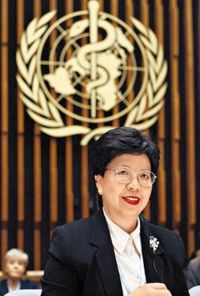Not only that more people come to China to study Mandarin, but more people are interested in studying in China’s universities as undergrads.
This is no exception to Hong Kong students. A recent South China Morning Post article reported on their China experience, which lends a window into understanding what it is like being an overseas university student in China. Corruption and Marxist theories turn out to be their most overwhelming cultural discoveries.
Thursday, January 4, 2007
HK students in great leap northward…But Hong Kong students find they have to make many adjustments on the mainland. One of the worries they share is how to maintain their standard of English during their time on the mainland.
“I really think the English lessons are unacceptable. If my English teacher was in Hong Kong, I think he would be sacked,” Ms Wong said. “I think my English is deteriorating after studying here for one year.”
Many also find studying Marxist political theories heavy going – although exemptions are possible depending on the regulations of individual universities.
“Sometimes I feel lonely because my classmates don’t understand why I find Marxist theories are so hard because they have studied them since they were children,” Ms Wong said.
Adjusting to different living styles is also a huge step the students have to make – including different hygiene standards, communal shower rooms and different working hours.
“There are four living in the same room in the dormitory and there is no privacy,” Ms Sze said. “At first I was not used to it because my room-mates don’t take showers every day.”
Mr Yiu, also a first-year student, said he missed the press freedom in Hong Kong. “In the newspapers in Hong Kong, there are opinion pages and people have different perspectives in looking at the same incident,” he said. “There is no such thing in mainland papers and something is missing here.”
Most students said they believed the understanding they were gaining about the cultural differences on the mainland would help them to mature because they had to take care of themselves.
But some of the cultural discoveries can be overwhelming.
A Hong Kong student who once helped to organise recreational events at her university said the experience helped her to understand how corruption bred on the mainland.
“For example, when students organise a ball, they might tell the university they needed 5,000 yuan for the event,” she said. “When the university approved the funding, most of the money went to the teachers and some went to the student union president. They may end up spending 100 yuan on the event because they borrow the equipment … instead of buying it.”
The student was amused to discover that the event’s organisers actually had two account books – a common practice among mainland companies – one for the university and one for themselves.
“Now I understand corruption starts from a young age,” she said.
Many said understanding how things worked on the mainland would help their careers because most were interested in jobs related to the mainland. Some were also hoping the mainland exposure could help them land civil service jobs in Hong Kong.
But many still had uncertainties about their prospects, with some wondering whether their qualifications would be recognised in Hong Kong.
Law student Vivian Li Sin-wan said she planned to spend more time in her final year to polish English because she had studied law in Chinese and would have to take professional examinations in Hong Kong if she wanted to practise here.
Medical student Dason Cheung said the pass rate for mainland-trained doctors in Hong Kong was low due to protectionism. While he might consider practising on the mainland, he would only consider international hospitals or clinics.
“The salaries for doctors in mainland hospitals are so low,” he said. “In Beijing, they may earn about 2,000 yuan a month. It is hard to survive unless you take red packets [bribes].”

